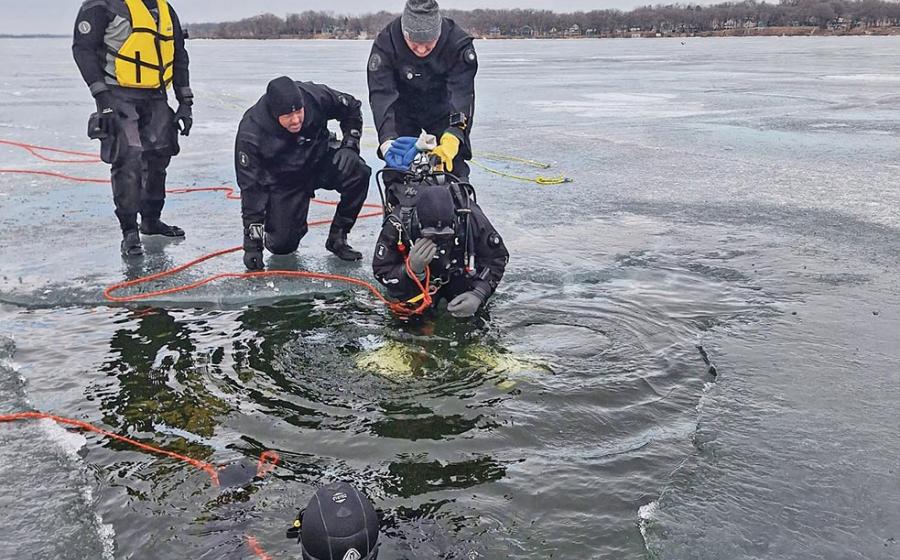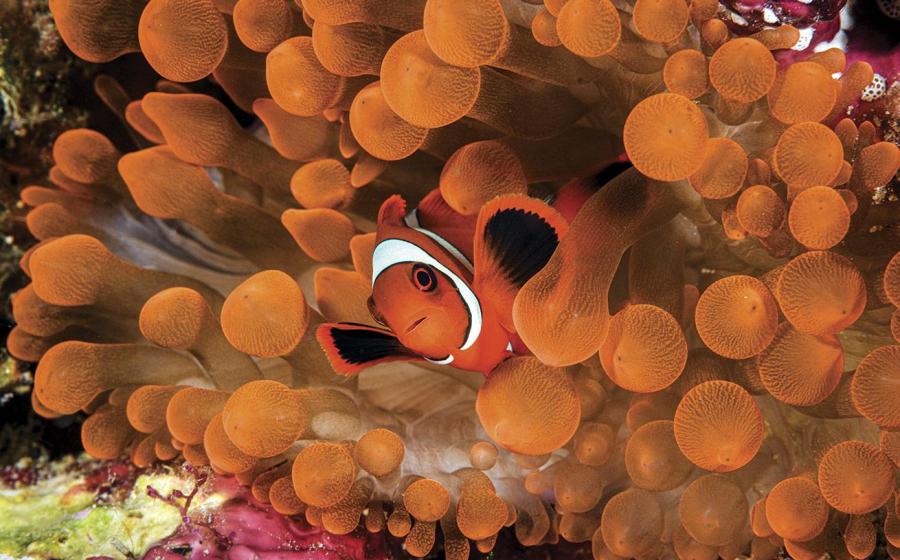Mike Goldberg Earns Sea Hero Honors for Conservation Work in The Florida Keys
Year Certified: 1992
Age When Certified: 28
Dive Certification Level: Master Scuba Diver Trainer
Words To Live By: “Knowing is the key to caring; with caring there is hope that people will be motivated to take action. They can’t care if they are unaware.” -Dr. Sylvia Earle
Thirty years ago, Mike Goldberg remembers Florida Keys brain coral the size of a VW Beetle, and fields of staghorn and elkhorn coral that went on forever. The owner of Key Dives in Islamorada knows those days are gone, but instead of giving up, he decided to do something about it. “I felt it was necessary to focus our energy on conservation, not only for the benefit of our business but for the benefit of all divers as well as all who call the Keys home,” Goldberg explains.

Courtesy Key DivesMike Goldberg
Four years later, his shop donates 2 percent of gross receipts to conservation organizations (a total of just under $20,000 last year); has removed more than 5 tons of marine debris from local reefs in just the last 18 months; made 5,000 re-usable grocery bags and gave them to Islamorada residents; hosts an annual wetsuit recycling program for Upper Keys dive shops and residents; and runs trips every month for the Coral Restoration Foundation. And that’s just the beginning.
Q: What persuaded you to change your business model?
A: We hosted a fundraiser for Coral Restoration Foundation that was so much fun and allowed me to meet some fantastic people trying to improve our coral reefs—and we raised roughly $1,000! The success of this event showed me we could have a positive impact on our reefs and in our community.

Ian WilsonKey Dives staff rescuing a stranded sea turtle—later rereleased to the wild.
Q: You have an on-staff conservation manager; what does that mean for Key Dives?
A: As part of our change in philosophy, I sought new staff members with a marine biology or conservation background. This change led me to Cortney Benson. Although a divemaster—we had never hired someone who was not an instructor—she, more importantly, has a master’s degree in conservation biology and a passion for ocean conservation. She quickly becomes our conservation manager, and helps me shape new ideas, educates our divers and creates new community conservation programs. But the whole staff has embraced my vision of conservation and now embodies the idea. Without their love and support, I don’t believe I would be successful.
Q: What Key Dives programs could other shops replicate?
A: For a dive shop to stay relevant, it’s important to offer ways to dive with a purpose. To continue business as usual is missing the future of diving, the younger generation of divers who yearn to make our ocean healthier. If shops adopt this mindset, they will constantly think of new and creative way to get their customers involved, and ultimately create a more-stable customer base and, most importantly, a healthy reef.
Recently, Dr. Kylie Smith and I co-founded I.CARE, a partnership with Mote Marine Laboratories and the National Marine Sanctuary Foundation aimed at restoring the reefs of Islamorada. This is our largest endeavor and, ultimately, our greatest challenge. In support of I.CARE, Mote has agreed to install a full-scale, on-shore coral nursery right here at our marina. This is incredibly exciting!

Courtesy Key DivesMike Goldberg distributing reusable shopping bags to his community, Islamorada’s Key Dives puts conservation first.
Q: How can readers help?
A: I want to see every person who comes for a week of diving get involved for at least one day. Participate in a reef clean-up, arrange a tour of a local coral nursery, participate in a coral transplant trip with I.CARE or Coral Restoration Foundation, or seek out educational opportunities offered by numerous nonprofits here in the Keys. The time has come to not just dive for fun, to see the pretty reef and take pictures, but to be more and do more for our future ocean. The future of our reefs depends on us.
Q: What is your greatest challenge?
A: Funding and manpower. This is a new world that is facing a pandemic with all of its uncertainties; as a result, funding a reef-restoration effort understandably receives less attention. By the beginning of March, I.CARE had received pledges equaling approximately 70 percent of our funding goal. Sadly, many of these sources now have struggles of their own. Also, I.CARE needs recreational divers in mass to help with transplants, maintenance and reporting. Thanks to the economic strife caused by the pandemic, we anticipate fewer traveling divers in the near term.
That said, most of the shops here in Islamorada, including Key Dives, will soon be offering trips multiple times per month to get out on the reef and do this very important work. We just need people here, and the monies necessary to support this project. We know I.CARE will ultimately be successful, but given the pandemic, we expect to be off to a slow start.
What is important to me is to change the baseline. I so much want, someday before I depart, for a new diver to look into the water and see some of what I saw many years ago. Even more important is for that diver, when they are my age—57—to look back over their diving history and say, “I remember when the reefs were truly struggling, but now look at their beauty!”
Each Sea Hero featured in Scuba Diving receives a Seiko Prospex SRPE05 watch valued at $595. For our December issue, judges select a Sea Hero of the Year, who receives a $5,000 cash award from Seiko to further his or her work. Nominate a sea hero at /seaheroes.










